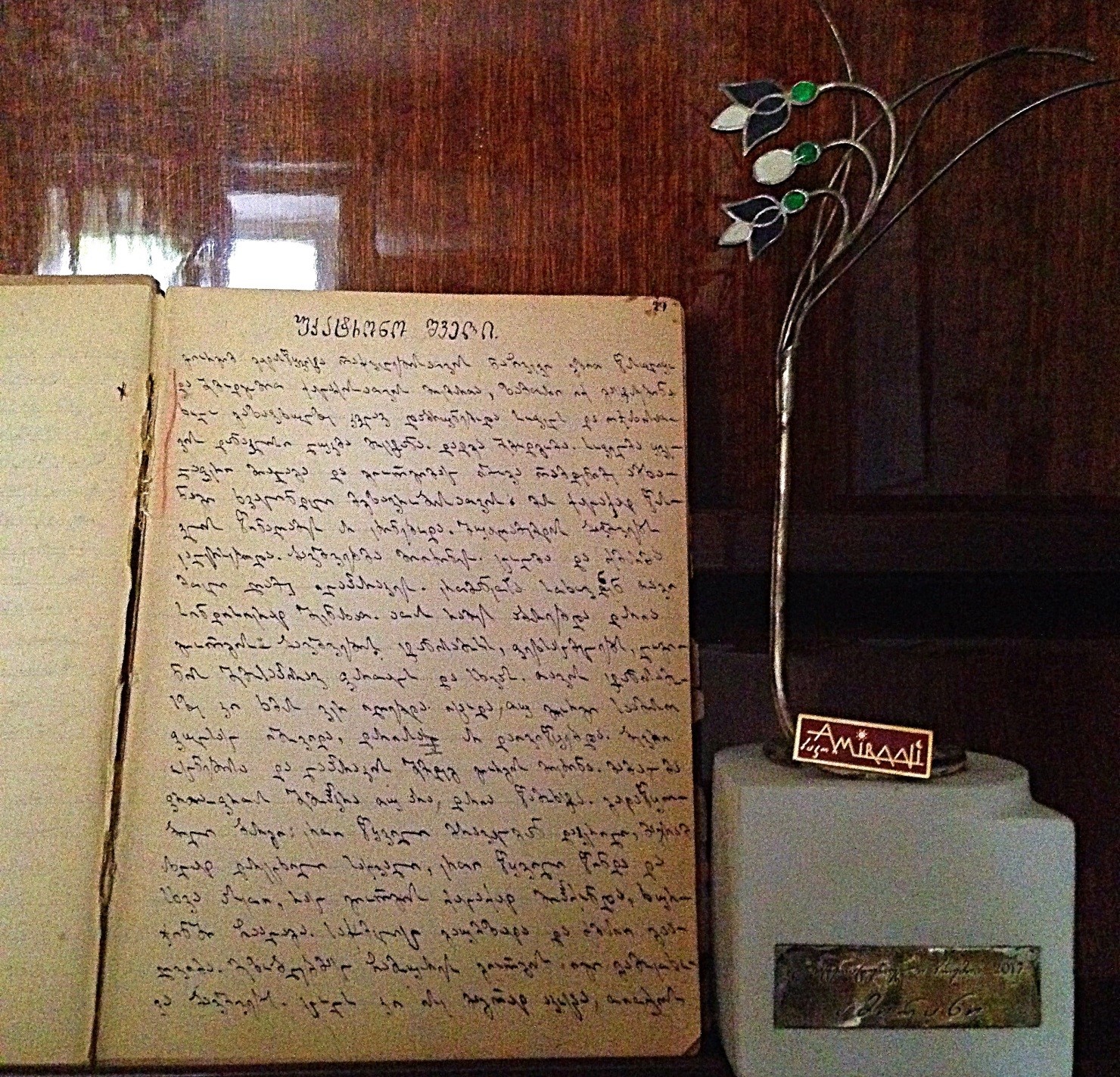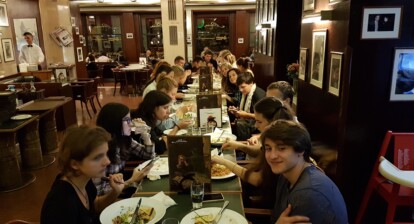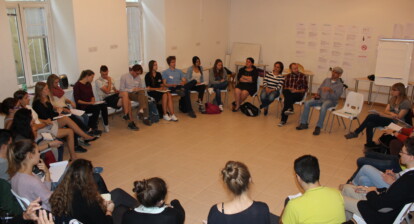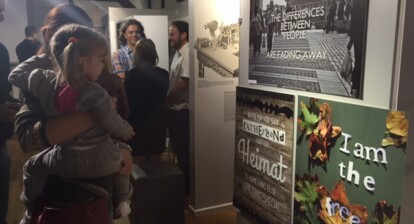In autumn 2019, I was officially honored with the opportunity of becoming a EUSTORY History Campus Blog author with the article “Love for Writing Runs in My Blood”. I consider this as one of the most important achievements in my life. Here I share my experiences as an author.
For clarification, I must say that I had sent the article as a part of the application for the Editors’ Team 2019 and thus was offered to become the an author because of the suitability of the article with the blog’s content. Because of my earlier interest in becoming an editor, I was already aware of the fact that the articles are edited by a journalist and the Editors’ Team in order to make the piece suitable for the EUSTORY History Campus guidelines. Knowing this made my expectations quite high – it is a common knowledge that any author needs critical feedback, especially from professionals in order to gain considerable writing experience and grow personally, as well.
As for me, my hopes and expectations have been fulfilled – I learned more about the ways of making the article more catchy and stylish, realized the importance of sophisticating the story in making already raised voices stronger, clearer, and, consequently, more impactful.
The First Contact with EUSTORY, Körber-Stiftung and the Editors’ Team Concerning my Contribution
The very first email from the foundation offering to be an author was so encouraging and motivational, that I can still remember the immense happiness of reading it. The email was stating how my story as well as describing its impact on me was fine enough to be seen on the blog. I must admit that for an ordinary Georgian student such opportunities are quite rare which makes my overwhelming reaction understandable.
As for the first encounter with the Editors’ Team, I was a little anxious. Although I was informed about the editing necessities, I still did not know exactly what to expect.
All traces of my nervousness vanished when the very first email arrived in July 2019 from the Editors’ Team. It was both so polite and encouraging (as were all later emails) that it made me feel my contribution to be important in growing the blog’s own history. The very first contact was also very clear with the straightforward purpose of editing necessities, which also played a huge role in the future cooperation.
Working with the Deadlines
The editor’s and my whole communication was held by email. The whole process went nicely and smoothly. The communication continued approximately 2 months, exchanging exactly 10 emails. I had no problems with the deadlines as well as cooperating with the editor. The time given to adjust the text to the requirements was really convenient. The longest amount of time that I took with altering the article according to the first set of guidelines was a period of one week.
I would like to mention that the modification process was personally so entertaining and enlightening for me, that it took me only one day to follow the second set and finalizing stage of the editing requirements. The most important reason for this was being extremely motivated by the editor’s encouraging emails, considering my article to be eloquent and likeable.
The Understanding of Feedback and its Assistance in Improving the Article
As I have mentioned above, the feedback is vital for authors, especially for those who have a burning desire to become professional writers – including me; and especially when the assessment is positive with the supportive, motivational statements and comprehensible purposes. Editor’s emails were full of such phrases, including clear and eloquent explanation of editor’s role in the editing process, the regulations set by the blog and the suggestions to make the narrative much better. All of it – reading the feedback, following guidelines, taking pictures of the items mentioned in the article (the diary and the award), seeking websites to add into the article for clarification – made the narrative of my article much more “natural” for the English language as well as more perceivable and touching.
When it comes to the feedback I received during this time, I would like to mention the fact that it not only assisted me improve the article, but my writing in general – I believe that the most important achievements in my life took place after the experience of being a EUSTORY History Campus Blog author which clearly emphasizes the fact of the considerable educational, heartening and skillful features of the feedback.
My Attitude Towards the Published Article
I believe the published version of the article is as sophisticated as possible. After necessary adjustments, it has become more appealing and interesting to read. I realized the importance of describing the surroundings of the narrator in details – the events happening, even the smell and thoughts while discovering something that is crucial in the article – is the key to skillful writing.
Moreover, the picture included in the article made it more graspable and emotional. I consider this approach by the Editorial Team towards the article to be thoughtful, artistic and even psychologically well-developed – visual aspect is undoubtedly unforgettable. Nevertheless, I obtained more experience in team work and as the process of editing is a co-working activity.
Trust and Cooperation
I also came to the realization that without trust and cooperation, it is almost impossible to achieve the goal of editing others’ works. In order to gain this trust, it is important to be truthful, eloquent concerning explanations of the editing guidelines and happy to assist them if/when necessary, whereas from the author’s point of view, it is important to be opened to new possibilities and alterations, willing to learn more and capable of coming on board with exact thoughts regarding the article.
On the whole, I am so satisfied with the published article that I am unable to mention anything that can be improved. Something I just can add to gain the trust and make authors express characteristics mentioned above, is a little but still considerable psychological trick I assumed to be important from the author’s point of view during the editing process – trying to “copy” the author’s style of writing and use similar textures, phrases and formations of sentences in the emails addressed to them or in the comments suggesting ideas to modify the text. I think it would make the process both “adventurous” and easier. In the end, all of the aims mentioned above can be achieved from the heartfelt feelings towards history, writing, art and many more of those fields and phenomena in which History Campus Blog unites us all.
Sharing the Article with my Personal Surroundings and Their Reactions
One more reason why I consider the editing of my article to be artistically done and tailor-made is because although there were a few people involved in the editing process, the final product – the published article – was so similar to my writing style that none of its readers – including my family and friends who often read my works realized that the story had been edited by other contributors.
The article was even shared by the History Competition in Georgia which is exactly that competition which led me to the EUSTORY Summit 2018 and opened up so many meaningful opportunities for me.
In conclusion, according to all of stated facts above, involving my very own experience, I can say without any shred of doubt that by appreciating history and raising voice of people all over Europe, the EUSTORY History Campus Blog is capable of changing lives for better.





